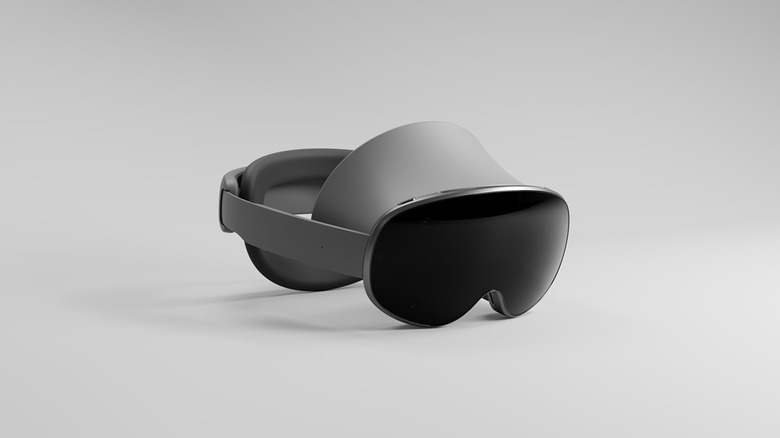Samsung's Vision Pro Rival Is Official: Meet The Project Moohan XR Headset
The last thing I expected to happen this month was seeing Samsung and Google announce the XR devices they teased together with Qualcomm nearly two years ago. That device, which is supposed to compete against the Apple Vision Pro, was expected to be a "one more thing" type of announcement at the Galaxy S25 event next month.
However, Google confirmed earlier this week that Project Astra AR and AI experiences are coming soon to smart glasses. That was part of the big Gemini 2.0 announcement that dropped right in the middle of OpenAI's "12 Days" ChatGPT event and Apple's iOS 18.2 release. That's the iPhone update that brings ChatGPT integration to iOS.
In that context, it's unsurprising to see Samsung and Google announce Project Moohan (Korean for "infinity") seemingly out of the blue on an otherwise quiet Thursday in December. Project Moohan (dare I call it Galaxy Infinity) will launch in 2025 to compete against the Vision Pro. But the XR device, which can be seen in the image above, will have a big advantage over Apple's spatial computer: Built-in Galaxy AI and Gemini.
That's not the only twist, as Google also confirmed XR smart glasses are coming soon. That's a product that Apple has yet to make.
Samsung explained in a blog post what XR is. It's short for "Extended Reality," and it encompasses various technologies:
XR is an umbrella term for technologies that use digital elements to extend or alter reality by merging the physical and digital worlds together. This includes virtual reality (VR), augmented reality (AR), mixed reality (MR) as well as other similar technologies yet to be developed. XR offers infinite possibilities, creating a dynamic spatial canvas where users' sight, sound and motion combine to interact with the outside world. A world that will unlock unprecedented experiences across core areas of life, from working and learning to entertainment, gaming and even health and wellness.
Put differently, Samsung, Google, and Qualcomm are working on spatial computers powered by Android, regardless of what you call them. Project Moohan will be a direct competitor to Apple's Vision Pro. It all makes sense once you look at the software experience, which Google detailed in its own separate announcement.
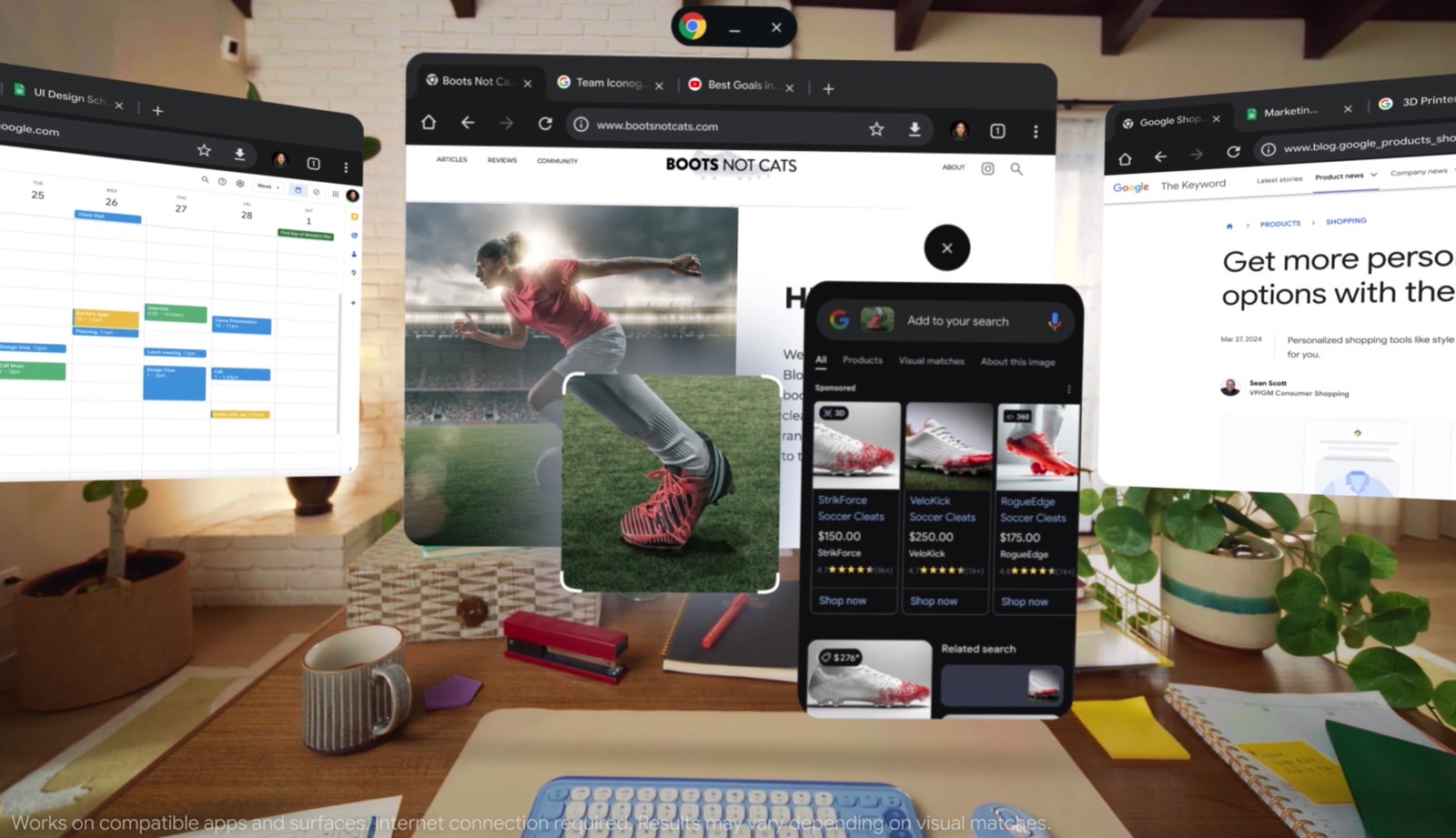
Samsung also teased the capabilities of Project Moohan without giving it an exhaustive presentation:
Code named "Project Moohan", the first headset designed for Android XR is poised to bring this experience to life in the near future. The name "Moohan," meaning 'infinity' in Korean, connotes our belief in delivering unparalleled, immersive experiences within an infinite space. Equipped with state-of-the-art displays, Passthrough capabilities, and natural multi-modal input, this headset will be your spatial canvas to explore the world through Google Maps, enjoy a sports match on YouTube, or plan trips with the help of Gemini. All these experiences come with lightweight, ergonomically optimized hardware designed to ensure maximum comfort during use.
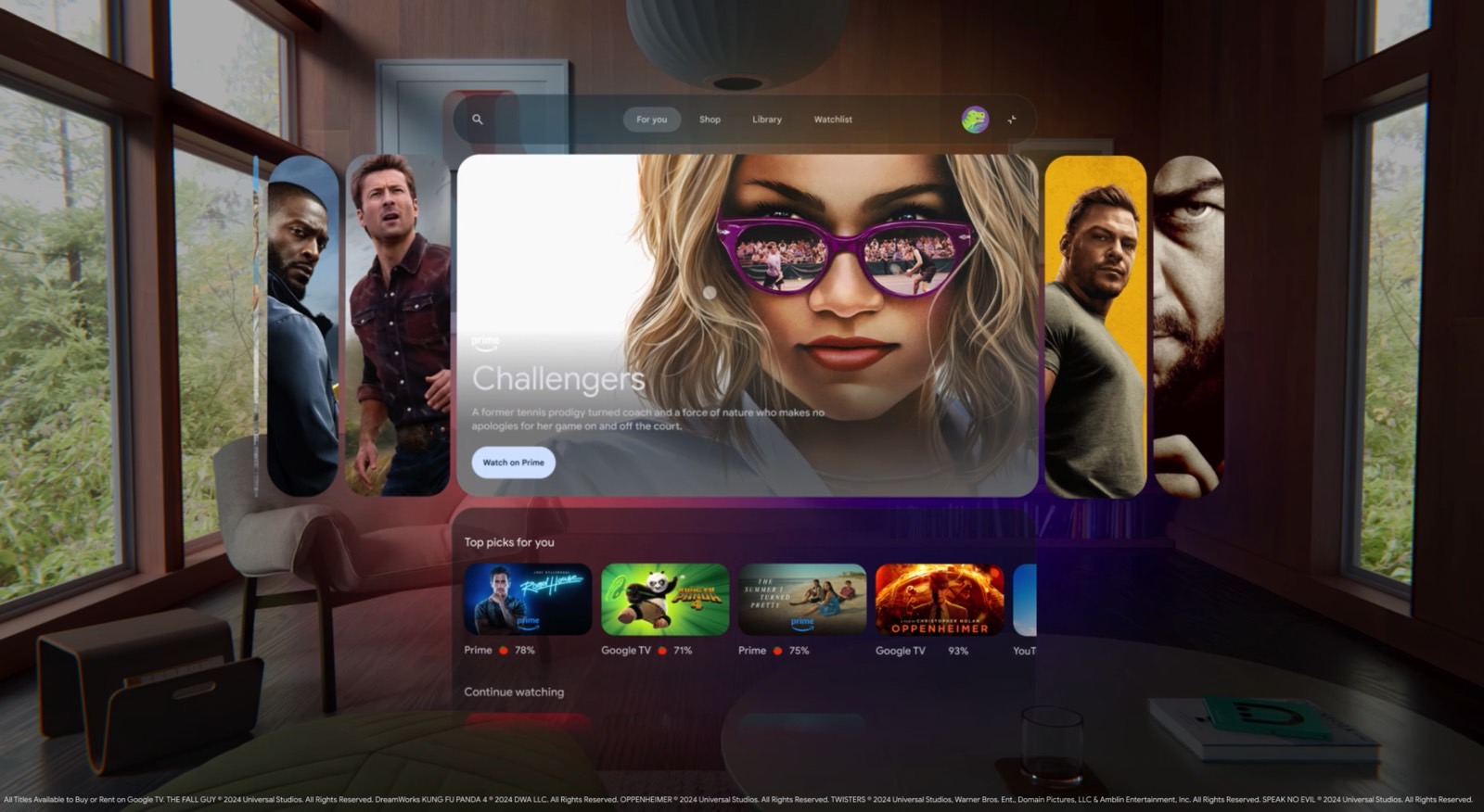
From the sound of it, Samsung and Google are targeting the weaknesses of the Vision Pro. More interesting than Project Moohan is the AR experiences coming to smart glasses that will support Google's new Android XR platform. Like Google, Samsung mentions the glasses, confirming my hunch that Samsung might be working on multiple types of XR headsets.

While Samsung mentions Google apps, AI, and its Galaxy AI suite in its announcement, it's Google's blog that you'll want to see. Google offers short video clips of the Android XR platform in action that makes it clear we're looking at a spatial computer in line with what Apple has developed for the Vision Pro:
With headsets, you can effortlessly switch between being fully immersed in a virtual environment and staying present in the real world. You can fill the space around you with apps and content, and with Gemini, our AI assistant, you can even have conversations about what you're seeing or control your device. Gemini can understand your intent, helping you plan, research topics and guide you through tasks.
Unlike Apple's visionOS, Google is building Android XR with AI at the center, which will give it an advantage over the Vision Pro. I said last year after Apple's Vision Pro announcement at WWDC that the spatial computer needs AI to become an even more useful tool.
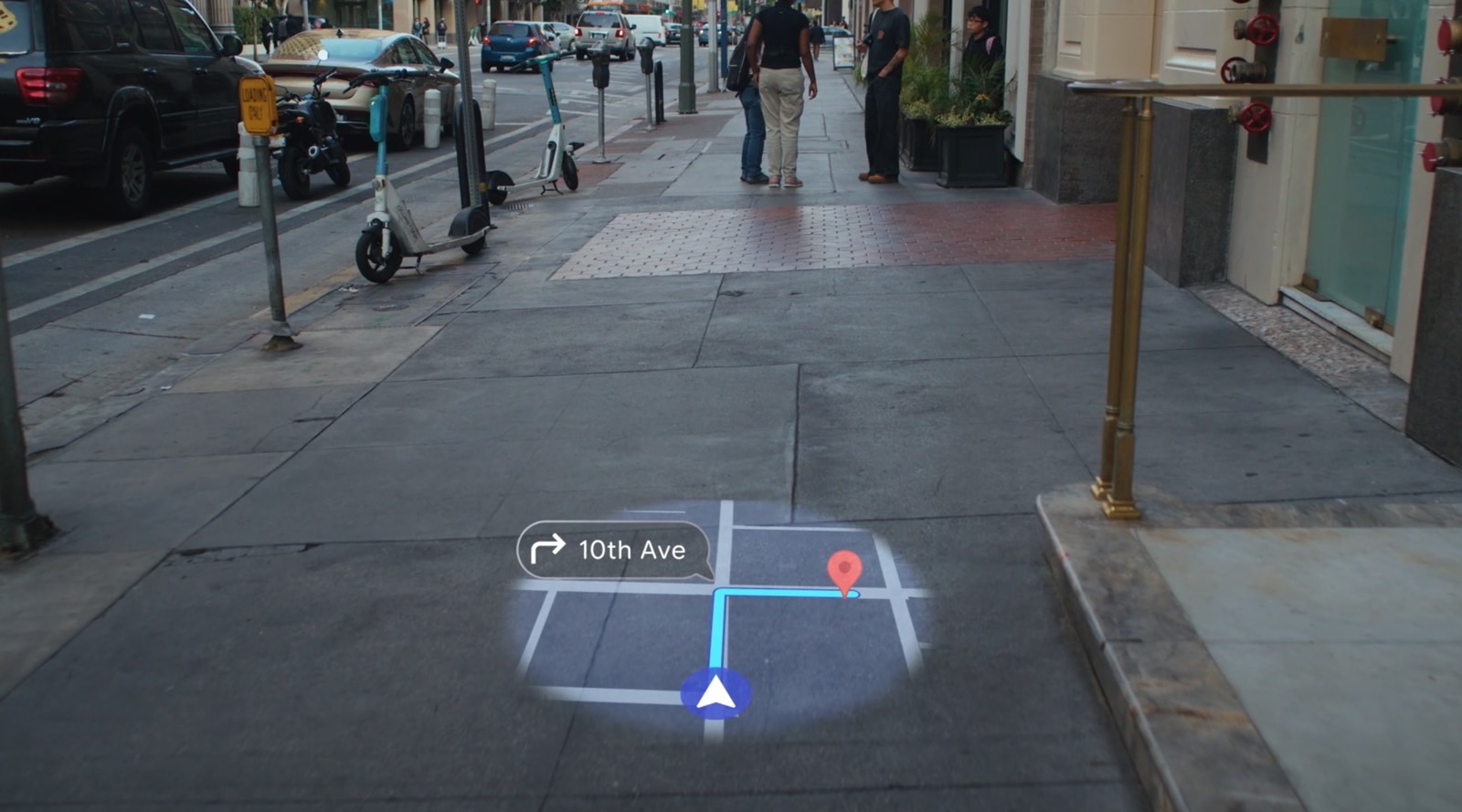
Nearly two years later, Project Moohan will launch with Gemini and Galaxy AI on board. It'll be interesting to see if the Vision Pro gets Apple Intelligence by then.
Back to the Android XR platform, it's unclear when Project Moohan will launch or how much it will cost. Samsung will reveal that sometime in the future, maybe at the Galaxy S25 event in January.
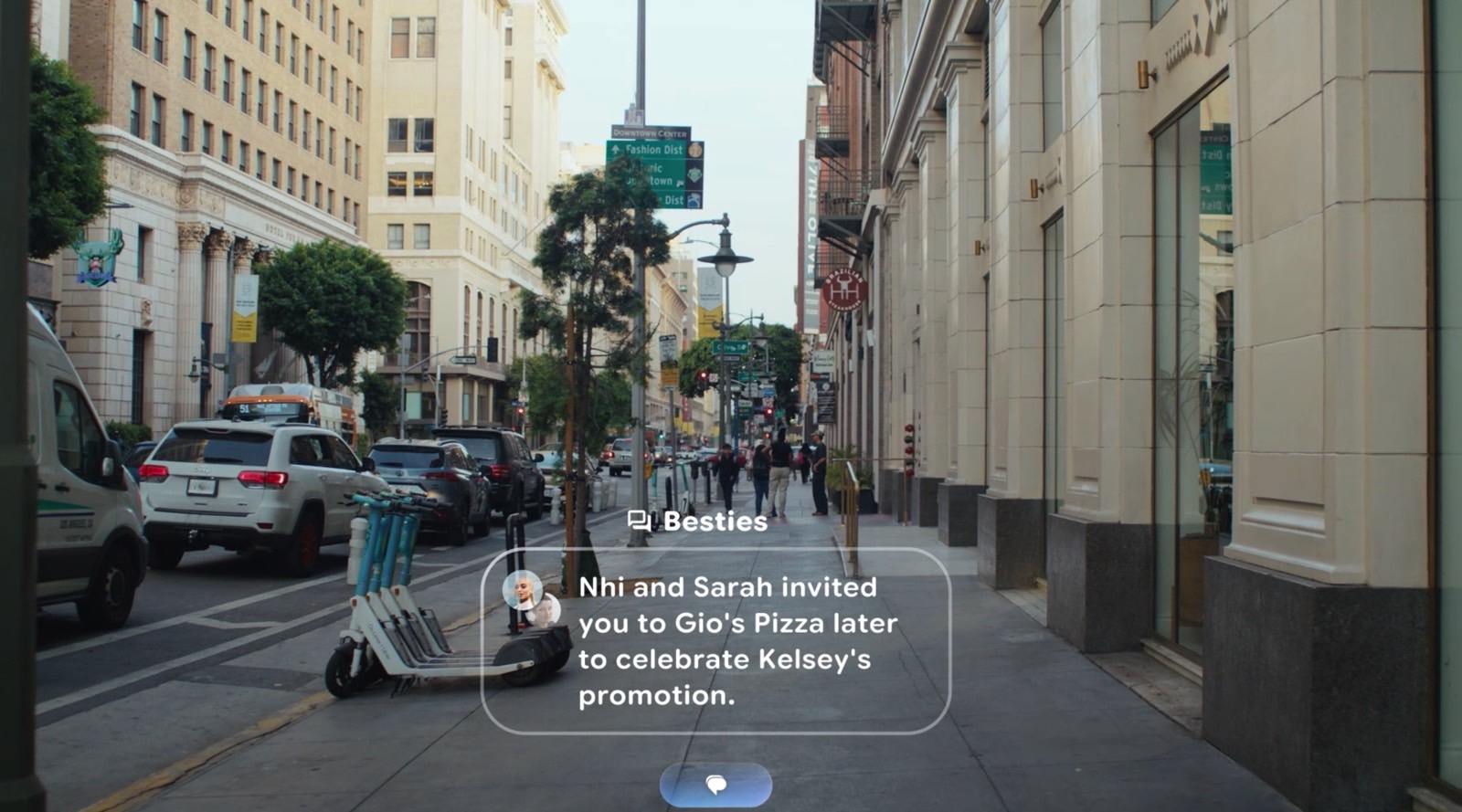
What I find more interesting in Google's Android XR demos are the AR experiences for smart glasses with Gemini AI at the center. Android XR glasses will let you navigate your surroundings with Google Maps, translate languages on the fly, read notification summaries, and even offer tutorial information for things you might do around the house.

We saw some of these features in action during Google's Project Astra demo on Wednesday. However, Google has yet to reveal who will make the first-gen Android XR glasses.
